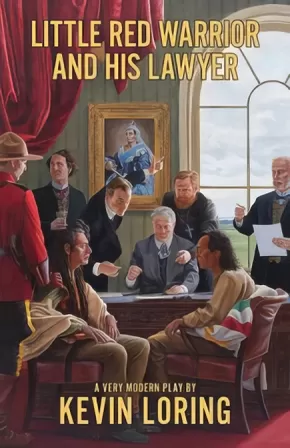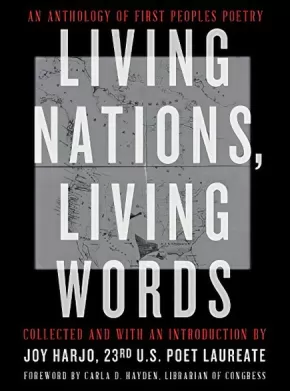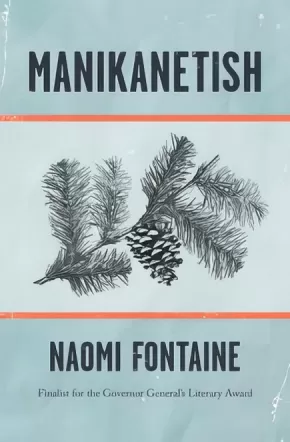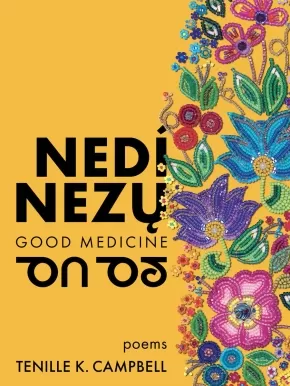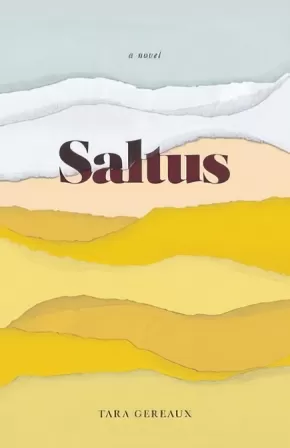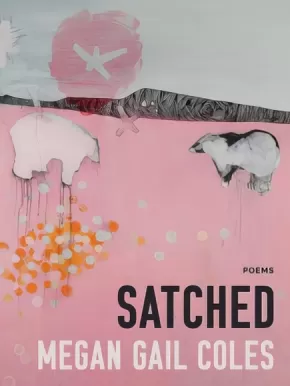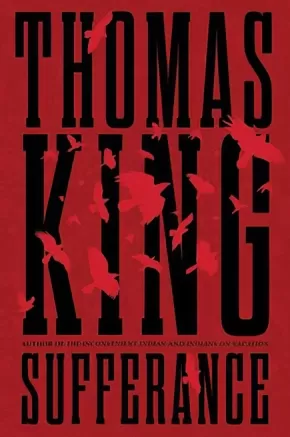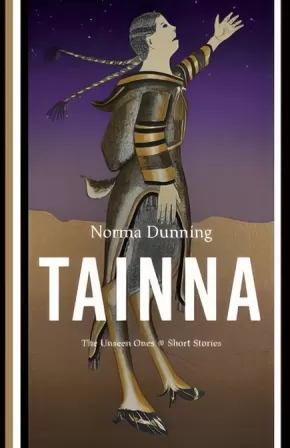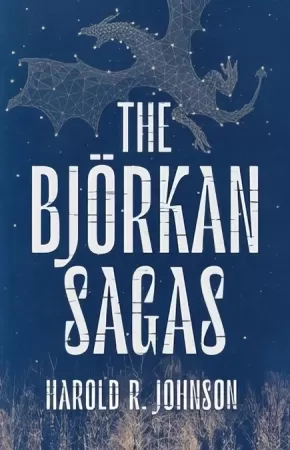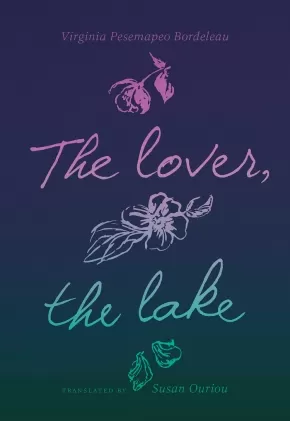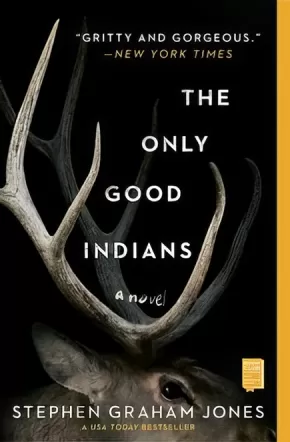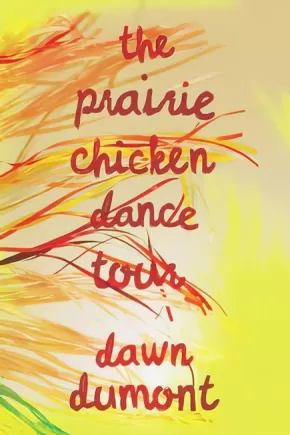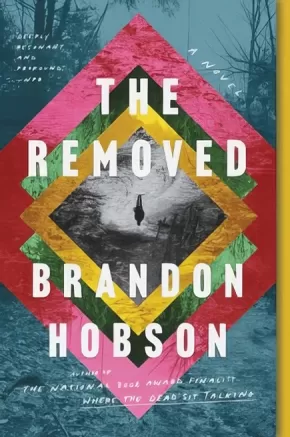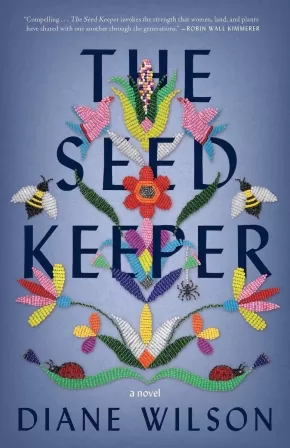Fiction
Synopsis:
Little Red Warrior is the last remaining member of the Little Red Warrior First Nation. One day, he discovers a development company has begun construction on his ancestral lands. In a fit of rage, Little Red attacks one of the engineers and is arrested for assault and trespassing on his own lands. In jail he meets his court-appointed lawyer, Larry, who agrees to help Little Red get his lands back. Larry convinces his wife, Desdemona, to allow Little Red to move into their basement while they sort out Red’s case. Desdemona and Red strike up an uneasy relationship. When Red notices that one of Desdemona’s eyes is slightly lazy she becomes increasingly neurotic, convinced that Little Red is up to something. Despite herself Desdemona, who is not accustomed to being thrown off her game, is increasingly drawn to Red’s apparently hypnotic Indigenous charisma. As sparks begin to fly between them Larry prepares to fight for Little Red’s Land Rights. An unexpected intervention by a greater power occurs in the court case, and nothing will ever be the same.
Educator Information
Cast of one Indigenous man; two settler men; one settler woman; and one male, female, or non-binary person in drag.
Additional Information
96 pages | 5.50" x 8.50"
Synopsis:
A powerful, moving anthology that celebrates the breadth of Native poets writing today.
Joy Harjo, the first Native poet to serve as U.S. Poet Laureate, has championed the voices of Native peoples past and present. Her signature laureate project gathers the work of contemporary Native poets into a national, fully digital map of story, sound, and space, celebrating their vital and unequivocal contributions to American poetry.
This companion anthology features each poem and poet from the project—including Natalie Diaz, Ray Young Bear, Craig Santos Perez, Sherwin Bitsui, and Layli Long Soldier, among others—to offer readers a chance to hold the wealth of poems in their hands. The chosen poems reflect on the theme of place and displacement and circle the touchpoints of visibility, persistence, resistance, and acknowledgment. Each poem showcases, as Joy Harjo writes in her stirring introduction, “that heritage is a living thing, and there can be no heritage without land and the relationships that outline our kinship.” In this country, poetry is rooted in the more than five hundred living indigenous nations. Living Nations, Living Words is a representative offering.
Additional Information
192 pages | 6.43" x 8.62"
Synopsis:
In Naomi Fontaine’s Governor General’s Literary Award finalist, a young teacher’s return to her remote Innu community transforms the lives of her students, reminding us of the importance of hope in the face of despair.
After fifteen years of exile, Yammie, a young Innu woman, has come back to her home in Uashat, on Quebec’s North Shore. She has returned to teach at the local school but finds a community stalked by despair. Yammie will do anything to help her students. When she accepts a position directing the end-of-year play, she sees an opportunity for the youth to take charge of themselves.
In writing both spare and polyphonic, Naomi Fontaine honestly portrays a year of Yammie’s teaching and of the lives of her students, dislocated, embattled, and ultimately, possibly, triumphant.
Reviews
“A story of lived experience in which serene language and sensitively drawn images come together in short chapters like a succession of small touches of paint on a canvas.” — Le Devoir
“Here is a novel of courage, of surpassing oneself, and of resilience. This is a profoundly moving, human, beautiful book.” — ICI-Radio Canada
“Naomi Fontaine leads us to discover students who are sometimes endearing and sometimes disturbing, but always does so with poetry.” — Chatelaine.
Additional Information
5.25" x 8.00" | Paperback | Translated by Luise Von Flotow
Synopsis:
In her quickly gentrifying rural lake town Jade sees recent events only her encyclopedic knowledge of horror films could have prepared her for in this latest novel from the Jordan Peele of horror literature, New York Times bestselling author Stephen Graham Jones.
“Some girls just don’t know how to die…”
Shirley Jackson meets Friday the 13th in My Heart Is a Chainsaw, written by the author of The Only Good Indians Stephen Graham Jones, called “a literary master” by National Book Award winner Tananarive Due and “one of our most talented living writers” by Tommy Orange.
Alma Katsu calls My Heart Is a Chainsaw “a homage to slasher films that also manages to defy and transcend genre.” On the surface is a story of murder in small-town America. But beneath is its beating heart: a biting critique of American colonialism, Indigenous displacement, and gentrification, and a heartbreaking portrait of a broken young girl who uses horror movies to cope with the horror of her own life.
Jade Daniels is an angry, half-Indian outcast with an abusive father, an absent mother, and an entire town that wants nothing to do with her. She lives in her own world, a world in which protection comes from an unusual source: horror movies…especially the ones where a masked killer seeks revenge on a world that wronged them. And Jade narrates the quirky history of Proofrock as if it is one of those movies. But when blood actually starts to spill into the waters of Indian Lake, she pulls us into her dizzying, encyclopedic mind of blood and masked murderers, and predicts exactly how the plot will unfold.
Yet, even as Jade drags us into her dark fever dream, a surprising and intimate portrait emerges…a portrait of the scared and traumatized little girl beneath the Jason Voorhees mask: angry, yes, but also a girl who easily cries, fiercely loves, and desperately wants a home. A girl whose feelings are too big for her body. My Heart Is a Chainsaw is her story, her homage to horror and revenge and triumph.
Series Information
This is the first book in The Indian Lake Trilogy.
Additional Information
416 pages | 5.50" x 8.37" | Paperback
Synopsis:
A celebratory, slyly funny, and bluntly honest take on sex and romance in NDN Country.
nedi nezu (Good Medicine) explores the beautiful space that being a sensual Indigenous woman creates - not only as a partner, a fantasy, a heartbreak waiting to happen but also as an auntie, a role model, a voice that connects to others walking the same path. From the online hookup world of DMs, double taps, and secret texts to earth-shakingly erotic encounters under the northern stars to the ever-complicated relationship Indigenous women have with mainstream society, this poetry collection doesn't shy away from depicting the gorgeous diversity in decolonized desire. Instead, Campbell creates the most intimate of spaces, where the tea is hot and a seat is waiting, surrounded by the tantalizing laughter of aunties telling stories.
These wise, jubilant poems chronicle many failed attempts at romance, with the wry humour needed to not take these heartbreaks personally, and the growth that comes from sitting in the silence of living a solo life in a world that insists everyone should be partnered up. With a knowing smile, this book side-eyes the political existence and celebrates the lived experience of an Indigenous woman falling in love and lust with those around her -but, most importantly, with herself.
nedi nezu is a smart, sensual, and scandalous collection dripping in Indigenous culture yet irresistible to anyone in thrall to the magnificent disaster that is dating, sex, and relationships.
Reviews
"Since I was hit on by someone using lines from #IndianLovePoems and immediately went out to buy it, I've been eagerly waiting for Tenille K. Campbell's next collection. What a joy and a blessing to find myself in pages as intimate as staying up late with your best friend sharing truths, as hot as meeting your next lover's gaze, and as sharp as a mean auntie. nedi nezu cements Campbell's reputation as the matriarch of decolonized desire." -Eden Robinson, author of Trickster Drift
"There are many kinds of intimacy in Tenille Campbell's delicious second collection: that of laughing lovers entangled in damp sheets under the star-strewn northern sky; that of a Dene/Metis woman dreaming her relations with the living land, its histories, and its futures; that of a formidably talented woman in all her complex contexts - poet, scholar, mother, lover - who shifts with ease between evocations of knee-trembling desire, wry humour, tender kindness, and aching loneliness. The poems are a love-language that honours the messy, meaningful complexities of sensual self-determination, the fierce assertion of an Indigenous woman's embodied and visionary power. We are lucky indeed to have the restorative gift of Campbell's work in this ever more alienating world. Read it, share it, be transformed." -Daniel Heath Justice, author of Why Indigenous Literatures Matter
"Dare we all have such an opportunity to revel in the intimate oratories of Tenille K. Campbell's matriarchy. She asks us to 'know that we are in ceremony' as she undertakes an album of sensual and sexual vignettes rinsed clean of seeds in gentle spring waters. Alternatively, she interrogates fatphobia, Indigenous masculinities, academia, heteropatriarchy, and untangles the ways in which poetry hinges on the pervasive in the stratosphere of social media. Campbell shows us yet again why Indigeneity is wholly and irrevocably erotic by nature." -Joshua Whitehead, author of Jonny Appleseed
Educator Information
Caution: Mature language.
Additional Information
92 pages | 6.00" x 8.00"
Synopsis:
Evocative of Miriam Toews’ A Complicated Kindness and Diane Warren’s Cool Water, Tara Gereaux’s novel, set in small-town Saskatchewan, dissects themes of Métis identity, female identity and motherhood, aging and regret, and finally, acceptance.
Nothing ever seems to happen in the small town of Saltus. At the Harvest Gold Inn and Restaurant off Highway 53, two waitresses spend their evening shifts delivering Salisbury steak specials and slices of pie to the regulars. But everything changes when Nadine, a headstrong single mother, and her teenager, Aaron, arrive at the Gold, where Aaron—who has repeatedly been denied appropriate gender-affirming medical care from the mainstream system—undergoes a near-fatal procedure performed by an unqualified and eccentric recluse who lives on the outskirts of Saltus.
The events that transpire that evening force each townsperson to look long and hard at themselves, at their own identities, and at the traumas and experiences that have shaped them. Told from multiple perspectives, Saltus reveals the complexities inherent in accepting the identities of loved ones, and the tragic consequences that unfold if they are ignored. It is a story about relationships with others, and, even more importantly, with ourselves.
Reviews
"Calm, measured and fearless, Gereaux skillfully, and with compassion, depicts a community in the aftermath of trauma. Based on true events, this work of fiction is both haunting and human. Gereaux’s strength is in her characters—you can’t help but feel their torments as if they were your own." — Lisa Bird-Wilson, February 2021
Additional Information
304 pages | 5.50" x 8.50" | Paperback
Synopsis:
Named after a local word meaning “soaked through” or “weighed down,” Scotiabank Giller Prize finalist Megan Gail Coles’s debut poetry collection, Satched, is a vivid portrait of intergenerational trauma, ecological grief, and late-stage capitalism from the perspective of a woman of rural-remote, Northern, working class, mixed ancestry.
Honest, penetrating, and often darkly comic, these poems explore the extraordinary will it requires to stay alive in the face of economic precariousness, growing inequality, and prevailing dissatisfaction. With a fierce dedication to place, the collection explores the conflict inherent to individualistic priorities and collective needs present in a hyper-commodified Newfoundland and Labrador. Satched demands compassionate advocacy for all as it resolutely strives for clarity and acceptance while celebrating the momentary glimpses of joy in the path toward shared values and resilience.
Reviews
“This collection trills of the [Newfoundland] region and its distinct speech … Coles creates an intimacy in Satched through her urban maritime lens and straightforward style.” — Quill & Quire
“Reading Satched is like drinking chilled wine with an old friend on a hot night, commiserating with love, gratitude, and mutual affection. It’s opening a second bottle, letting the kids fall asleep watching movies, and getting out the hidden cigarettes to really get into it. It’s a fist in the air before it’s aimed at an appropriate eyeball. It’s an exceptional accomplishment full of lyrical strength and poetic endurance.” — Katherena Vermette, author of river woman
“Are you ready for poems that pierce straight to the bone? Megan Gail Coles’s Satched is a razor edge of fierce truth, grim humour, and unalloyed beauty. With sharp-eyed clarity and fearless candour, Coles slices open the veils of capitalism and colonization to reveal a landscape marked by poverty and resilience, violence, and hope. This is Newfoundland and Labrador seen through the eyes of unconditional love and furious rage. The political, the personal, and the poetic interweave seamlessly in this debut collection, adding another genre to Coles’s already impressive repertoire. Satched is the kind of book we need right now, the kind that confronts the real world head-on while also teaching us how to live in it.” — Kai Cheng Thom, author of a place called No Homeland
“Satched is an acerbic, bold, and wise debut that susses out the subtle and sinister ways men infringe on women’s mental and physical spaces, the horrors of the climate crisis, and the pitfalls of economic precarity. With technical mastery and an immediately infectious tone, Coles inhabits the voices of Atlantic Canada, unearths the ways grief inhabits a place, and interrogates prevailing notions of resiliency. Coles intimates both how ‘our minds are poisoned against ourselves’ and the ways in which kinship offers a path to forge through the audaciousness of capital and insidiousness of colonialism. Reading Satched is like talking to your smartest, funniest friend, who wryly declares, ‘there is nothing and no one standing in your way, / except capitalism and global pandemics.’” — Cassidy McFadzean, author of Drolleries
“These poems tumble into me with a rage and beauty that is oceanic. I am satched to the core. Megan Gail Coles writes poems that ask us to reconsider historical and contemporary attitudes toward poverty, race, gender, and the environment, engaging her reader in ‘this present rowing over the past / to make up the future.’ Because while these poems speak deeply to intergenerational trauma, solastalgia, and the systemic ills of capitalism hidden in plain sight, they are forward-looking at heart. Satched puts forth that despite (or perhaps because of) our human frailties, we can begin again. These poems demonstrate that repair is possible, even from a rusty scaffold, if we are willing to reach beyond ourselves.” — Clea Roberts, author of Auguries
Additional Information
112 pages | 6.00" x 8.00" | Paperback
Synopsis:
Jeremiah Camp, a.k.a. the Forecaster, can look into the heart of humanity and see the patterns that create opportunities and profits for the rich and powerful. Problem is, Camp has looked one too many times, has seen what he hadn’t expected to see and has come away from the abyss with no hope for himself or for the future.
So Jeremiah does what any intelligent, sensitive person would do. He runs away. Goes into hiding in a small town, at an old residential school on an even smaller Indian reserve, with no phone, no Internet, no television. With the windows shut, the door locked, the mailbox removed to discourage any connection with the world, he feels safe at last. Except nobody told the locals that they were to leave Jeremiah alone.
And then his past comes calling. Ash Locken, head of the Locken Group, the multinational consortium that Jeremiah has fled, arrives on his doorstep with a simple proposition. She wants our hero to formulate one more forecast, and she’s not about to take no for an answer. Before he left the Locken empire, Jeremiah had created a list of twelve names, every one a billionaire. The problem is, the people on the list are dying at an alarming and unnatural rate. And Ash Locken wants to know why.
A sly and satirical look at the fractures in modern existence, Sufferance is a bold and provocative novel about the social and political consequences of the inequality created by privilege and power—and what we might do about it.
Additional Information
320 pages | 6.00" x 9.00"
Synopsis:
Drawing on both lived experience and cultural memory, Norma Dunning brings together six powerful new short stories centred on modern-day Inuk characters in Tainna. Ranging from homeless to extravagantly wealthy, from spiritual to jaded, young to elderly, and even from alive to deceased, Dunning’s characters are united by shared feelings of alienation, displacement and loneliness resulting from their experiences in southern Canada.
In Tainna—meaning “the unseen ones” and pronounced Da‑e‑nn‑a—a fraught reunion between sisters Sila and Amak ends in an uneasy understanding. From the spirit realm, Chevy Bass watches over his imperilled grandson, Kunak. And in the title story, the broken-hearted Bunny wanders onto a golf course on a freezing night, when a flock of geese stand vigil until her body is discovered by a kind stranger.
Norma Dunning’s masterful storytelling uses humour and incisive detail to create compelling characters who discover themselves in a hostile land where prejudice, misogyny and inequity are most often found hidden in plain sight. There, they must rely on their wits, artistic talent, senses of humour and spirituality for survival; and there, too, they find solace in shining moments of reconnection with their families and communities.
Awards
- 2021 Governor General's Literary Award for English-language fiction
Additional Information
160 pages | 5.50" x 8.50"
Synopsis:
Drawing upon his Cree and Scandinavian roots, Harold R. Johnson merges myth, fantasy, and history in this epic saga of exploration and adventure.
While sorting through the possessions of his recently deceased neighbour, Harold Johnson discovers an old, handwritten manuscript containing epic stories composed in an obscure Swedish dialect. Together, they form The Björkan Sagas.
The first saga tells of three Björkans, led by Juha the storyteller, who set out from their valley to discover what lies beyond its borders. Their quest brings them into contact with the devious story-trader Anthony de Marchand, a group of gun-toting aliens in search of Heaven, and an ethereal Medicine Woman named Lilly. In the second saga, Juha is called upon to protect his people from invaders bent on stealing the secrets contained within the valley’s sacred trees. The third saga chronicles the journey of Lilly as she travels across the universe to bring aid to Juha and the Björkans, who face their deadliest enemy yet.
The Björkan Sagas is a bold, innovative fusion of narrative traditions set in an enchanted world of heroic storytellers, shrieking Valkyries, and fire-breathing dragons.
Additional Information
176 pages | 5.00" x 7.75" | Hardcover
Synopsis:
A spellbinding novel celebrating Indigenous sensuality; the first erotic novel written by an Indigenous woman in French, now available in English.
When it was first published in Quebec, The Lover, The Lake was heralded as the first erotic novel written by an Indigenous woman in French. Today, as it is translated into English for the first time, author Virginia Pesemapeo Bordeleau would rather call it a celebration of sensuality, another first. At a time when Indigenous peoples were being dispossessed of their land and history as well as their relationship to the body, the love explored by Wabougouni and Gabriel is an act of defiance. Their intimate connection plays out on the shores of Lake Abitibi in an affair as turbulent and unfathomable as the lake itself.
"The aim here is to break free of the bonds of wounds the priests' abuse has left on our bodies and souls, wounds linked to loss--of land, of intimate spaces, of identity both as an individual and community member, of sexual identity, of delight in the body, of innocence and the uncomplicated nature of lovemaking. My hope is that this novel will serve to unearth the seed of joy buried deep in our culture, still profoundly alive . . . The Lover, The Lake shows us that we are not just suffering and victims: we can also be pleasure." -- Virginia Pesemapeo Bordeleau, from the prologue
Reviews
"A gift to its readers." - Montreal Review of Books
"Both raw and poetic... about healing and continuance... May more French Indigenous writing find its way into English." - Globe and Mail
Additional Information
170 pages | 5.50" x 8.00"
Synopsis:
In this latest novel from Stephen Graham Jones comes a “heartbreakingly beautiful story” (Library Journal, starred review) of revenge, cultural identity, and the cost of breaking from tradition.
Seamlessly blending classic horror and a dramatic narrative with sharp social commentary, The Only Good Indians is “a masterpiece. Intimate, devastating, brutal, terrifying, warm, and heartbreaking in the best way” (Paul Tremblay, author of A Head Full of Ghosts). This novel follows four American Indian men after a disturbing event from their youth puts them in a desperate struggle for their lives. Tracked by an entity bent on revenge, these childhood friends are helpless as the culture and traditions they left behind catch up to them in violent, vengeful ways. Labeled “one of 2020’s buzziest horror novels” (Entertainment Weekly), this is a remarkable horror story “will give you nightmares—the good kind of course” (BuzzFeed).
Reviews
“The Only Good Indians is scary good. Stephen Graham Jones is one of our most talented and prolific living writers. The book is full of humor and bone chilling images. It’s got love and revenge, blood and basketball. More than I could have asked for in a novel. It also both reveals and subverts ideas about contemporary Native life and identity. Novels can do some much to render actual and possible lives lived. Stephen Graham Jones truly knows how to do this, and how to move us through a story at breakneck (literally) speed. I’ll never see an elk or hunting, or what a horror novel can do the same way again.”—Tommy Orange, Pulitzer Prize finalist of There There
Additional Information
336 pages | 5.50" x 8.37"
Synopsis:
The hilarious story of an unlikely group of Indigenous dancers who find themselves thrown together on a performance tour of Europe.
The Tour is all prepared. The Prairie Chicken dance troupe is all set for a fifteen-day trek through Europe, performing at festivals and cultural events. But then the performers all come down with the flu. And John Greyeyes, a retired cowboy who hasn't danced in fifteen years, finds himself abruptly thrust into the position of leading a hastily-assembled group of replacement dancers.
A group of expert dancers they are not. There's a middle-aged woman with advanced arthritis, her nineteen-year-old niece who is far more interested in flirtations than pow-wow, and an enigmatic man from the U.S. -- all being chased by Nadine, the organizer of the original tour who is determined to be a part of the action, and the handsome man she picked up in a gas-station bathroom. They're all looking to John, who has never left the continent, to guide them through a world that he knows nothing about. As the gang makes its way from one stop to another, absolutely nothing goes as planned and the tour becomes a string of madcap adventures.
The Prairie Chicken Dance Tour is loosely based -- like, hospital-gown loose -- on the true story of a group of Indigenous dancers who left Saskatchewan and toured through Europe in the 1970s. Dawn Dumont brings her signature razor-sharp wit and impeccable comedic timing to this hilarious, warm, and wildly entertaining novel.
Additional Information
300 pages | 6.00" x 9.00" | Paperback
Synopsis:
Steeped in Cherokee myths and history, a novel about a fractured family reckoning with the tragic death of their son long ago—from National Book Award finalist Brandon Hobson.
In the fifteen years since their teenage son, Ray-Ray, was killed in a police shooting, the Echota family has been suspended in private grief. The mother, Maria, increasingly struggles to manage the onset of Alzheimer’s in her husband, Ernest. Their adult daughter, Sonja, leads a life of solitude, punctuated only by spells of dizzying romantic obsession. And their son, Edgar, fled home long ago, turning to drugs to mute his feelings of alienation.
With the family’s annual bonfire approaching—an occasion marking both the Cherokee National Holiday and Ray-Ray’s death, and a rare moment in which they openly talk about his memory—Maria attempts to call the family together from their physical and emotional distances once more. But as the bonfire draws near, each of them feels a strange blurring of the boundary between normal life and the spirit world. Maria and Ernest take in a foster child who seems to almost miraculously keep Ernest’s mental fog at bay. Sonja becomes dangerously fixated on a man named Vin, despite—or perhaps because of—his ties to tragedy in her lifetime and lifetimes before. And in the wake of a suicide attempt, Edgar finds himself in the mysterious Darkening Land: a place between the living and the dead, where old atrocities echo.
Drawing deeply on Cherokee folklore, The Removed seamlessly blends the real and spiritual to excavate the deep reverberations of trauma—a meditation on family, grief, home, and the power of stories on both a personal and ancestral level.
Reviews
“Brandon Hobson has given us a haunted work, full of voices old and new. It is about a family’s reckoning with loss and injustice, and it is about a people trying for the same. The journey of this family’s way home is full—in equal measure—of melancholy and love. The Removed is spirited, droll, and as quietly devastating as rain lifting from earth to sky.”—Tommy Orange, author of There There
"Hobson is a master storyteller and illustrates in gently poetic prose how for many Native Americans the line between this world and the next isn’t so sharp. This will stay long in readers’ minds."— Publishers Weekly (starred review)
“Mesmerizing…. Spare, strange, bird-haunted, and mediated by grief, the novel defies its own bleakness as its calls forth a delicate and monumental endurance.”— Kirkus Reviews (starred review)
“A multilayered, emotionally radiant second novel…. Hobson uses Cherokee tradition and the Echotas’ story to amplify each other, blending past and present in a narrative of blistering loss and final healing. Highly recommended.”— Library Journal (starred review)
"With elegiac grace, The Removed tells of one family’s struggles to find wholeness after tragedy."— Booklist
“There are many stories in The Removed, a mystical, deep, and compassionate novel that explores how the intimate lives of a family are shaped by powerful ancestral legacies. The traumas of the past, both personal and historical, are forever with us, but—and here is the miraculous heart of this novel—people can still abide, resist, and even recover. Every character in The Removed seems to contain an intricate, particular, fully realized world. A quietly dazzling and haunting achievement.”— Dana Spiotta, author of Eat the Document
“Astonishing. This moving and affecting novel tells the story of a Native family in crisis, each person dealing with the aftereffects of grief and trauma following the murder of a beloved son. But this is a book of hope and healing, a remarkable tale of resilience in the face of unimaginable pain. Written with lyrical and evocative prose and a deep reverence for Cherokee culture and tradition, The Removed is an important contribution to indigenous fiction and American literature.”— David Heska Wanbli Weiden, author of Winter Counts
Additional Information
288 pages | 5.31" x 8.00" | Paperback
Synopsis:
A haunting novel spanning several generations, The Seed Keeper follows a Dakota family’s struggle to preserve their way of life, and their sacrifices to protect what matters most.
Rosalie Iron Wing has grown up in the woods with her father, Ray, a former science teacher who tells her stories of plants, of the stars, of the origins of the Dakota people. Until, one morning, Ray doesn’t return from checking his traps. Told she has no family, Rosalie is sent to live with a foster family in nearby Mankato—where the reserved, bookish teenager meets rebellious Gaby Makespeace, in a friendship that transcends the damaged legacies they’ve inherited.
On a winter’s day many years later, Rosalie returns to her childhood home. A widow and mother, she has spent the previous two decades on her white husband’s farm, finding solace in her garden even as the farm is threatened first by drought and then by a predatory chemical company. Now, grieving, Rosalie begins to confront the past, on a search for family, identity, and a community where she can finally belong. In the process, she learns what it means to be descended from women with souls of iron—women who have protected their families, their traditions, and a precious cache of seeds through generations of hardship and loss, through war and the insidious trauma of boarding schools.
Weaving together the voices of four indelible women, The Seed Keeper is a beautifully told story of reawakening, of remembering our original relationship to the seeds and, through them, to our ancestors.
Reviews
“With compelling characters and images that linger long after the final page is turned, The Seed Keeper invokes the strength that women, land, and plants have shared with one another through the generations.”—Robin Wall Kimmerer, author of Braiding Sweetgrass: Indigenous Wisdom, Scientific Knowledge, and the Teachings of Plants
“As seeds are a gift from one generation to another, the song and the word of the seeds return to us, reminding us of our covenant, and also of the promise of love and rebirth. Always, I remember the Zapatista proverb ‘They thought they buried us, they forgot that we were seeds.’ That we are, and Diane Wilson’s narrative of intergenerational loss and rebirth fills my heart with gratitude.”—Winona LaDuke, author of Recovering the Sacred: The Power of Naming and Claiming
“A gracefully told story of continuity through seeds saved and nurtured by Dakota women, The Seed Keeper is lush and sustaining—a read that feeds heart and spirit in the same way as do the gardens that are their legacy.”—Linda LeGarde Grover, author of Onigamiising: Seasons of an Ojibwe Year
Additional Information
440 pages | 5.50" x 8.50"

